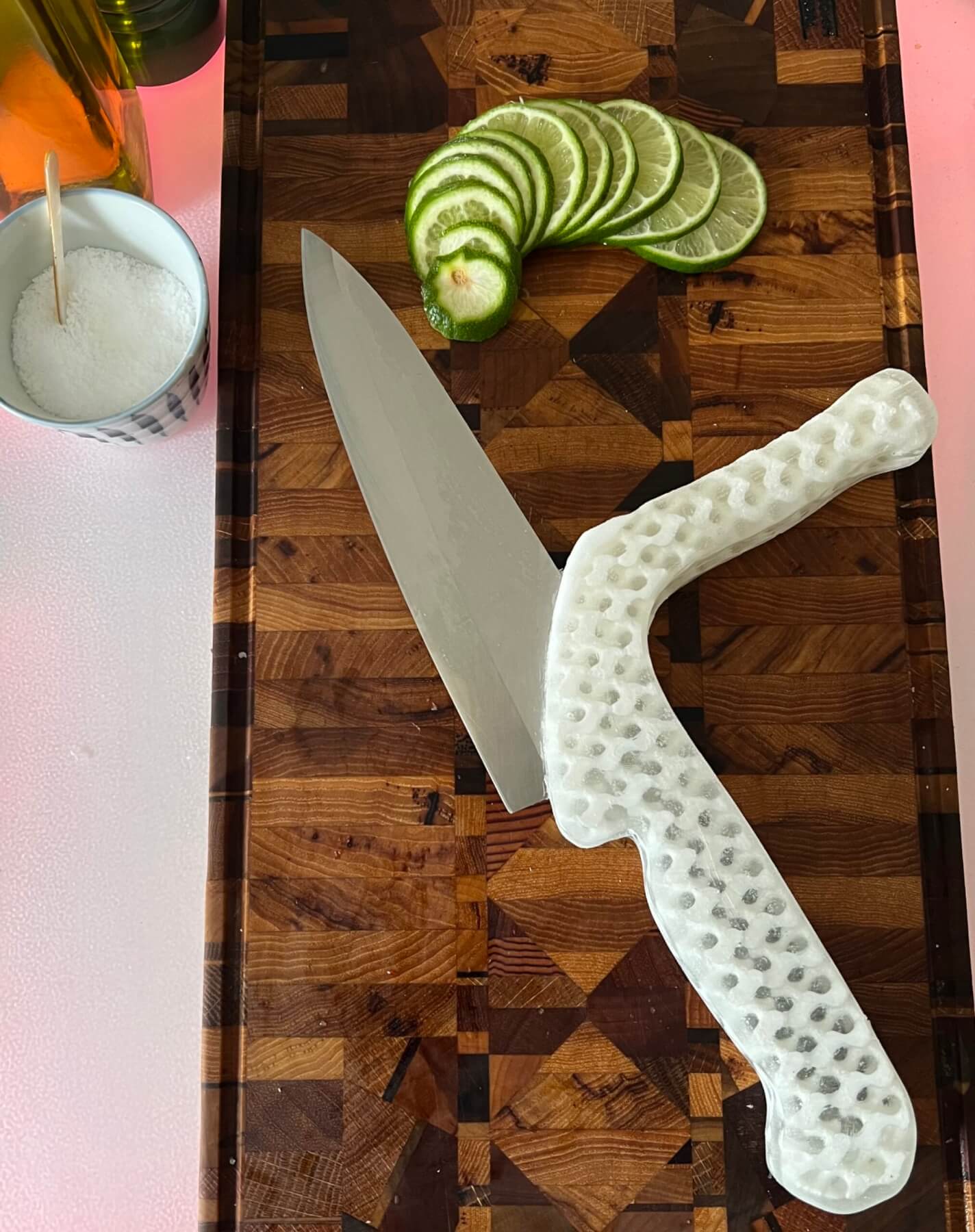
Coleen, an IATP customer, was referred to the Makers program after receiving a Tech Kitchen demonstration of assistive technology (AT) that could potentially benefit her work as a Food Services Director. As part of her job responsibilities, Coleen repetitively slices and chops a variety of different textured foods. These repetitive movements aggravate the arthritis in her wrist and hand resulting in increased pain, discomfort, and decreased job performance.
There are limited commercially available AT options for a chef with arthritis who must cut food safely and comfortably. Most adapted knives are not designed for commercial food preparation as they do not provide quality blades and handles strong enough for constant usage. After several unsuccessful trials with a variety of existing adapted knives, the Makers program designed and developed an adapted chef knife with a high-quality blade. The purpose of the design is to reduce the joint tension and pain experienced at the wrist during cutting tasks.
The design of the adapted chef knife was carefully considered to accommodate safe handling with grip and forearm leverage, structural stability, and durable material that could withstand commercial kitchen use. The adapted chef knife was created by first pressure forming and then filling a mold using Food and Drug Administration (FDA) approved materials, resulting in a clean, non-porous surface.
The Makers’ pressure former used in the design process is manufactured by Mayku, an international company located in London, that specializes in desktop pressure forming machines used by many different types of businesses all over the world. Mayku recently highlighted this user design story which has provided users in multiple countries access to the instructions and open source files located on the Makers website so that they can freely create this adapted chef knife for others with a similar need. Visit Mayku to read more on the story regarding the adapted chef knife.
Our devices are available to Illinois residents free of charge. However, we do accept donations to support program costs.
This work is licensed under a Creative Commons Attribution 4.0 International License.

